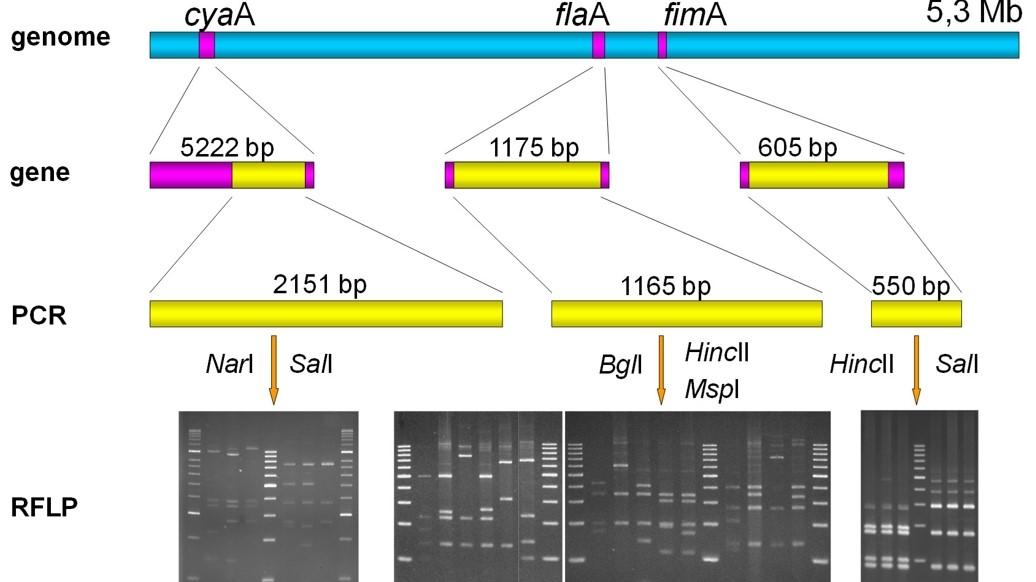
Virulence factors and host adaptation of Bordetella bronchiseptica
Bordetella bronchiseptica is a Gram-negative pathogenic bacterium that can cause respiratory diseases in a wide range of host species (swine, dogs, cats, rabbits). Case reports on human infections have also been reported. Its role in the atrophic rhinitis of swine is the most well-known as the disease causes remarkable economic losses to the modern swine production. The aim of our studies is to examine the host specificity of the virulence factors of B. bronchiseptica (signs of host-adaptation) and whether the virulence factors of the pathogen play a role in adapting to environmental changes. The first and crucial step of bacterial infection is the adhesion to mucosal cells. Adhesion requires a mechanism mediated by adhesins. Other virulence factors (e. g. toxins) play a role in the infection process as well. As our strain collection contains isolates from swine, dogs, rabbits, cats, humans and other (exotic) animals, this presents an opportunity to analyse the host specificity of virulence factors. Our studies may provide new scientific results in basic research and could be useful for developing rapid diagnostic tools and efficient, adequate drug therapy against this organism.